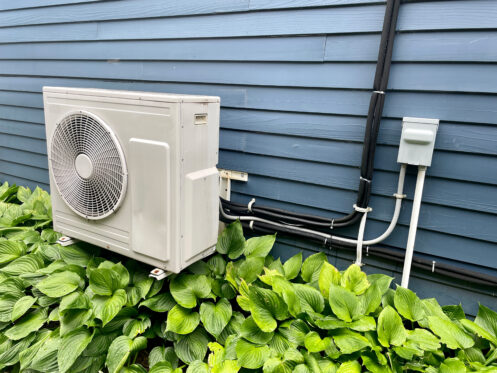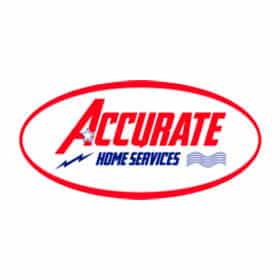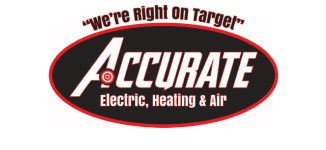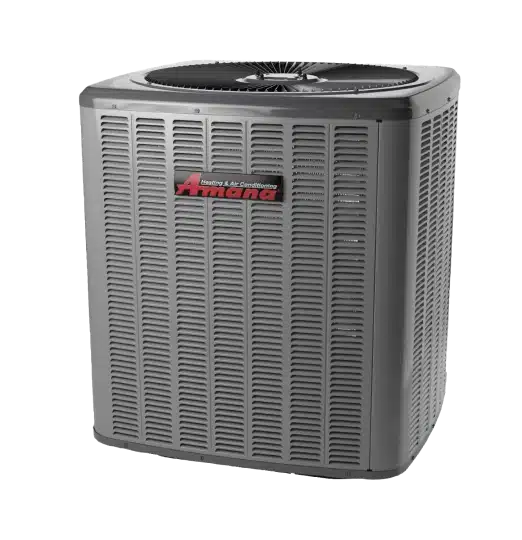If your current HVAC system has exceeded its expected lifespan or isn’t keeping your home comfortable and efficient anymore, consider upgrading to a heat pump. This is the evolved version of traditional central HVAC, leveraging its strengths while addressing its weaknesses.
What Makes Heat Pumps Unique
You can think of a heat pump as a combination air conditioner and furnace. It can provide much-needed warmth in winter and keep your home cool in summer. It does this by transferring heat from one point to the other. For instance, if you set your heat pump to cool, it will extract heat from the air outside and transfer it inside. The reverse is true for warming your home.
Unlike traditional HVAC systems that use electricity or burn fuel to warm the air, heat pumps only need little energy to facilitate the natural flow of heat from high-temperature areas to those with lower temperatures. The source of heat determines the various types of heat pump systems currently available on the market.
Types of Heat Pumps
Air-Source Heat Pumps: Air-source heat pumps pull or transfer heat to the outdoor air. They are ideal for areas that don’t experience extremely low temperatures.
Ground-Source Heat Pumps (Geothermal): Ground-source heat pumps rely on the natural heat from the earth to regulate indoor temperatures. Since the earth’s temperature tends to remain relatively steady throughout the year, geothermal heat pumps are perfect for people looking for consistent and reliable heating and cooling regardless of the weather.
Water-Source Heat Pumps: Quite common in areas with lakes, rivers, or ponds, these types of heat pumps rely on water to extract or dispel heat. They have the same components as ground-source heat pumps; in fact, there are hybrid systems that use both water and the earth’s surface for heat exchange.
Benefits of Heat Pumps
1. Energy Efficiency: As mentioned, heat pumps only facilitate the natural transfer of heat. This makes them highly efficient, with some models delivering up to five times the amount of energy they consume.
2. Cost Savings: Heat pumps are the most affordable way to heat and cool a home. They have fewer moving parts, so repair and maintenance costs will also be much lower. The best part is that they last the longest: from 20 to 50 years, depending on the type.
3. Eco-Friendliness: Heat pumps will trim your household’s carbon dioxide emissions by almost 40%. The federal or state government might give you some rebates or tax credits for your contribution toward a greener Earth.
4. Versatility: Heat pumps work as both cooling and heating systems, so you don’t need to invest in a separate air conditioning system or a furnace. This will save you both space and money.
5. Improved Air Quality: Traditional HVAC systems are prone to gas leaks because they rely on combustion to generate heat. They also have to move air through ducts, which are known to leak and accumulate dust and allergens. However, if you purchase a heat pump, you will never have to worry about frequent gas leaks, and if you invest in the ductless type, you will enjoy improved air quality with fewer contaminants in circulation. Keep in mind that these systems also have air purifiers and humidifiers integrated into them.
6. Quite Operation: Heat pumps are exceptionally quiet and often go unnoticed when running. Water-source and geothermal systems are practically soundless because they don’t require an external unit. You will have no issues with your local authority or HOA regarding noise levels.
7. Increased Property Value: An efficient heating and cooling system will make your home more desirable for potential buyers. The hassle of finding and installing a new system or dealing with one that breaks frequently is one of the biggest turnoffs when trying to sell a home.
8. Customization Options: There are various different types and makes of heat pumps that you can customize to match your home’s aesthetics. If you don’t want a bulky ductwork system, you can opt for a ductless mini-spilt unit that is sleek and unobtrusive. And if you want a heated floors, you can install a geothermal or water-source heat pump that can direct extra heat to your chosen areas without requiring you to invest in additional systems.
9. Future Proof: Heat pumps are relatively new on the market, so they employ the latest technology in home conditioning. You can get systems that you can control and monitor from your phone or ones that integrate artificial intelligence (AI) to learn your preferred temperature settings and usage patterns to provide a personalized and efficient heating and cooling experience.
10. Easy Installation: This primarily pertains to ductless heat pumps. Instead of buying and installing a ductwork system, the HVAC contractor will only need to drill a small hole (about 3 inches in diameter) to connect the indoor and outdoor units. The rest of the installation process is just mounting the different components of the heat pump and ensuring proper functionality.
Important Considerations When Purchasing a Heat Pump
Sizing: Different heat pumps have varying strengths and capacities. You must get one that is appropriately sized for your home to ensure efficiency, ultimate comfort, and longevity. A system that is too small will have to work harder and consume more energy to keep up with your home’s demands, accelerating wear and tear. In contrast, an oversized system will turn on and off more frequently, undermining comfort and also causing a lot of wear and tear.
To get the best size, your contractor will have to assess your home’s square footage, level of insulation, the overall climate, and your unique heating and cooling needs. If you have varying heating and cooling needs in different rooms, consider a multi-zone system instead of installing multiple heat pumps.
Energy Ratings: There are three main ratings to focus on: energy efficiency ratio (EER), seasonal energy efficiency ratio (SEER), and heating seasonal performance factor (HSPF). EER indicates the system’s ability to cool your home during the cold months. It is calculated by dividing the heat pump’s cooling output by its electrical input while factoring in relative humidity and static outdoor temperatures. A rating of at least 12 is recommended.
SEER reflects the efficiency of EER. It takes seasonal temperature fluctuations into consideration, thus giving a more accurate representation of the overall efficiency of the system. Ensure the system that you buy has a rating of at least 15 to qualify as energy-efficient by today’s standards.
HSPF shows the heat pump’s ability to efficiently heat your home during the cold months. This rating compares the system’s heating output when running to the electricity used during that period of time. Go for a rating of 8.2 or higher.
Alternatively, you can simply look for an Energy Star label on your heat pump of choice. Energy Star is a government-backed program that identifies systems with superior efficiency and energy-saving capabilities.
Call Accurate Home Services for More Information
We can assess your home, install a fitting Energy Star system, and help maintain it through the years. We also offer indoor air quality solutions and all AC and electrical services.
If you live in Crandall or Kaufman, TX or the surrounding areas, call Accurate Home Services for guidance on investing in a new heat pump system for your home.




